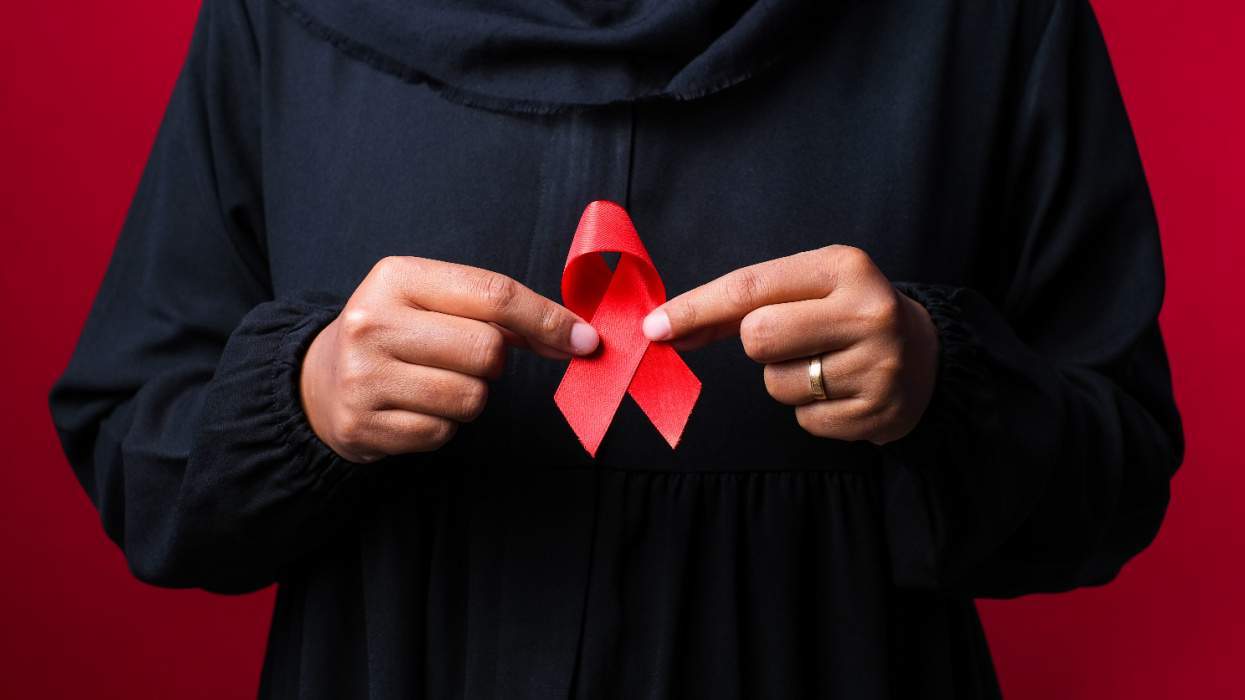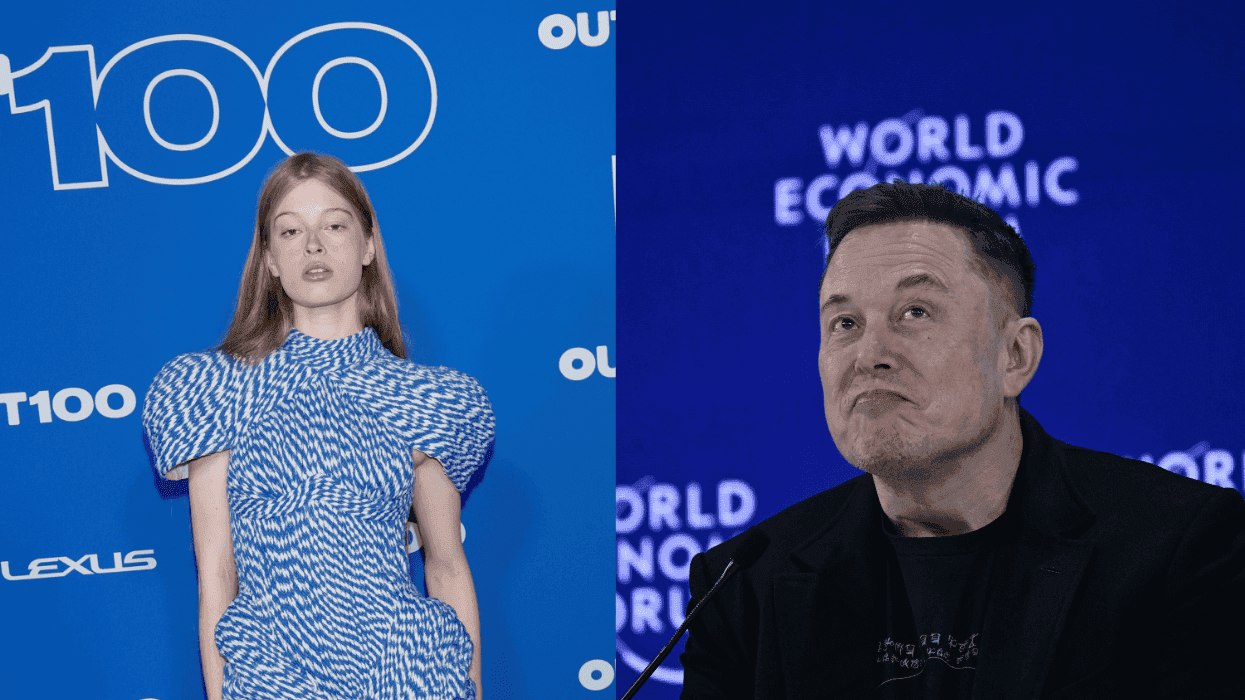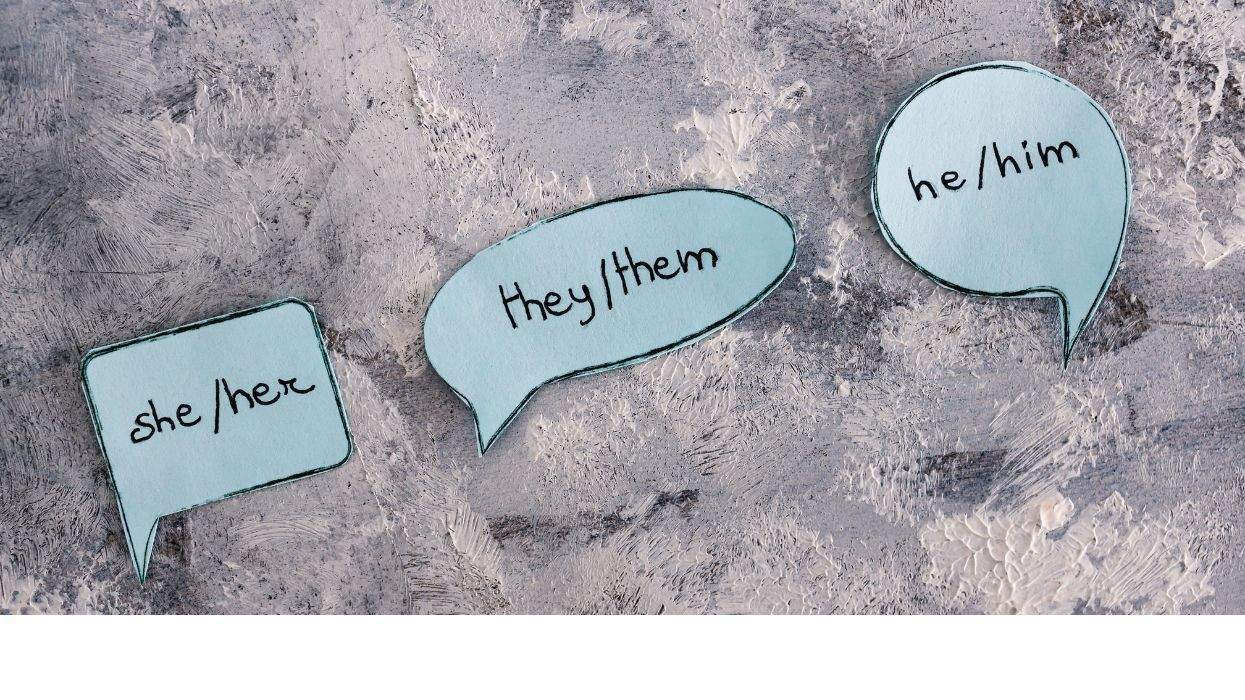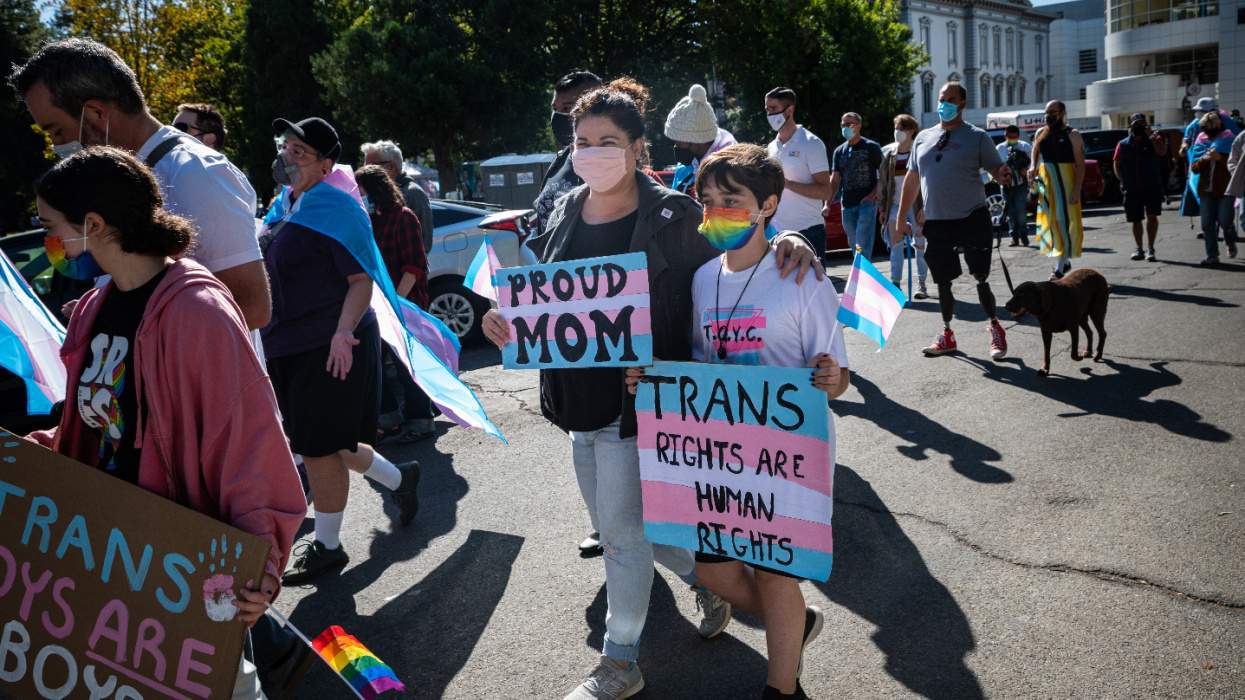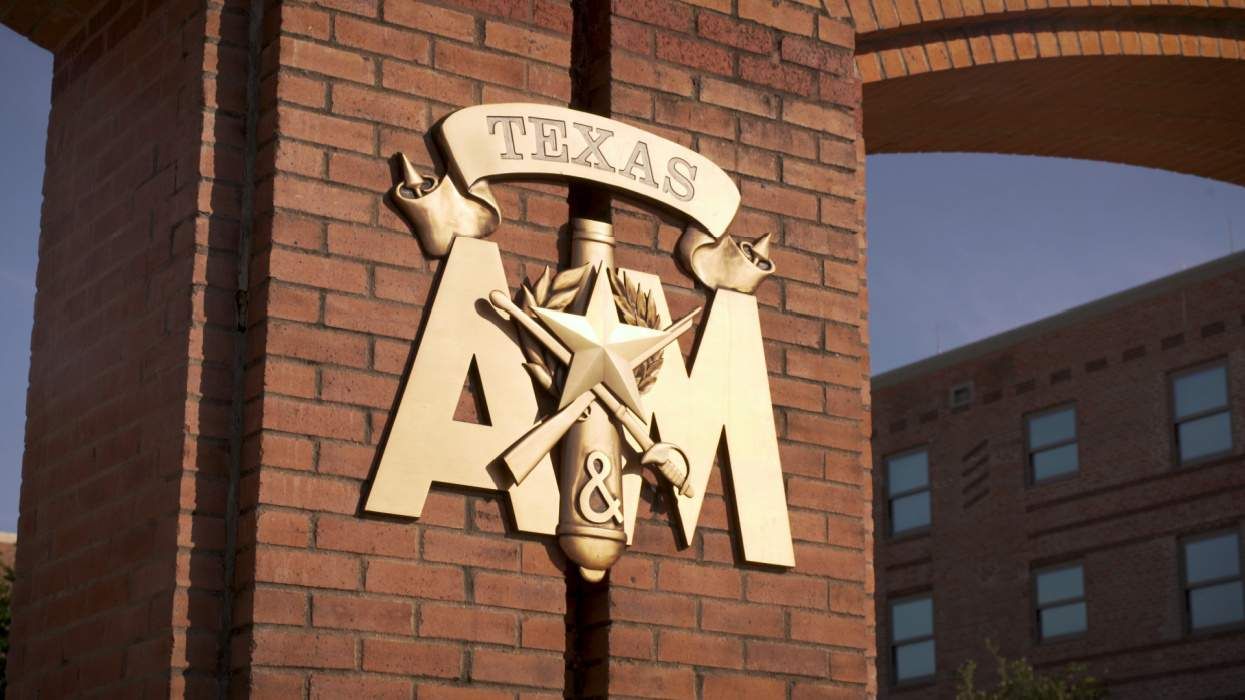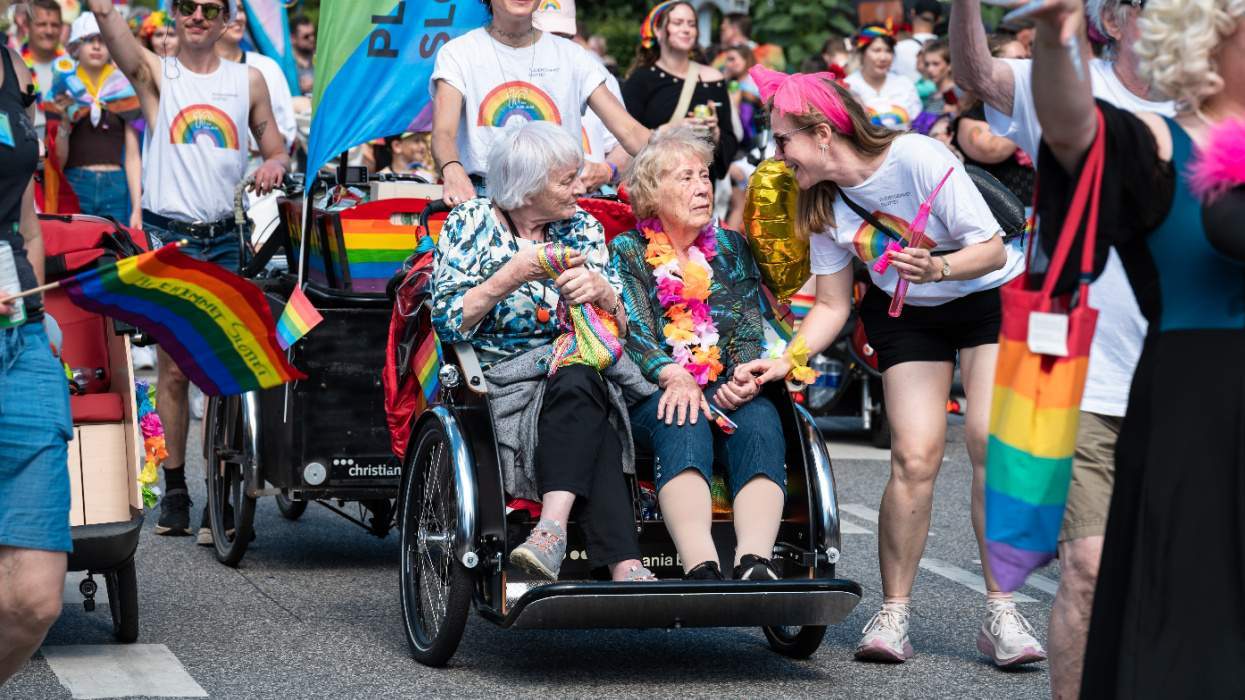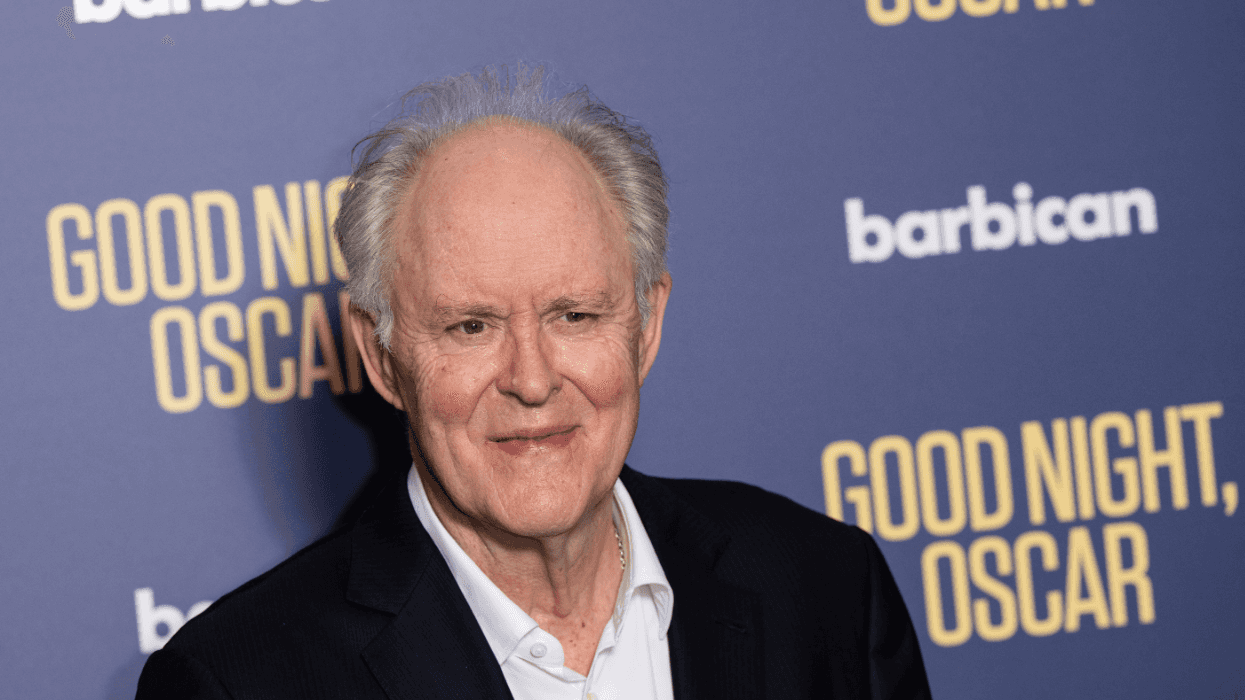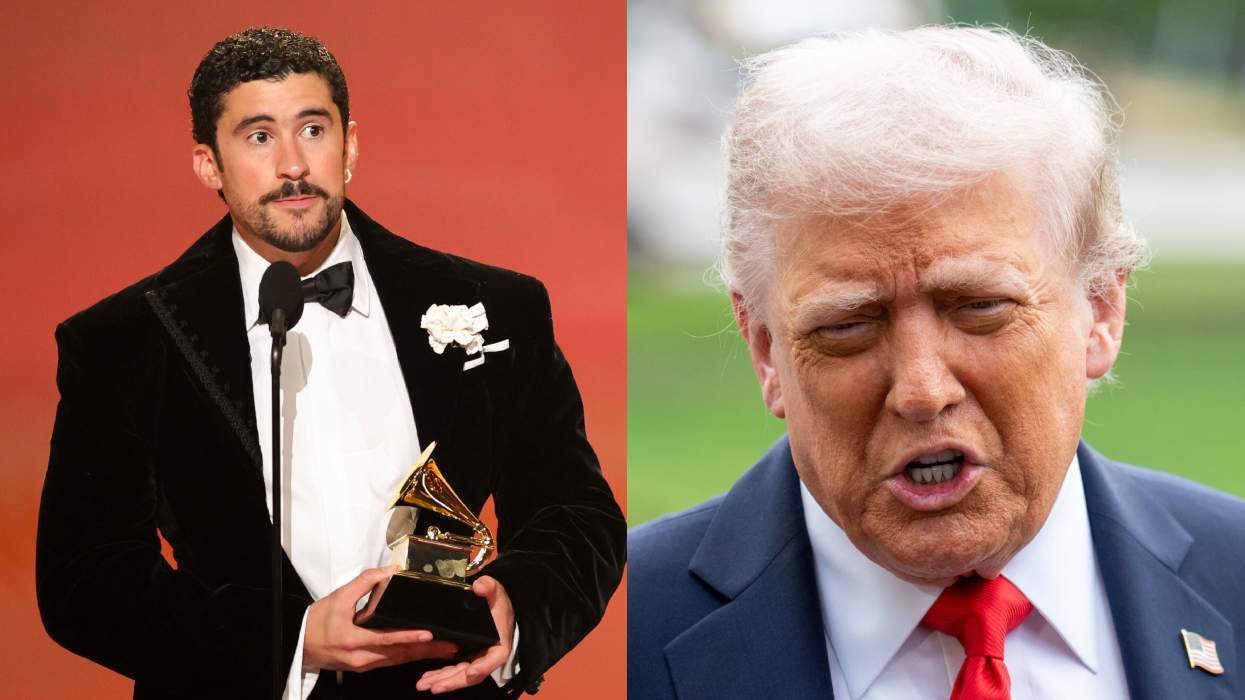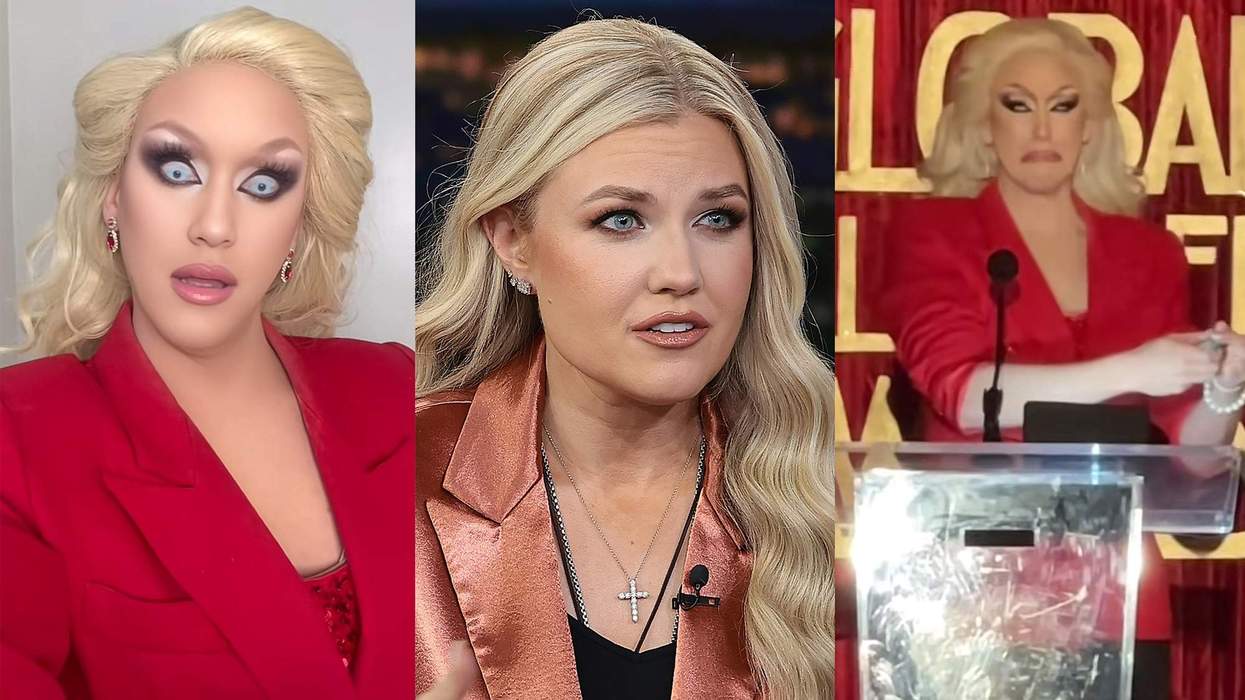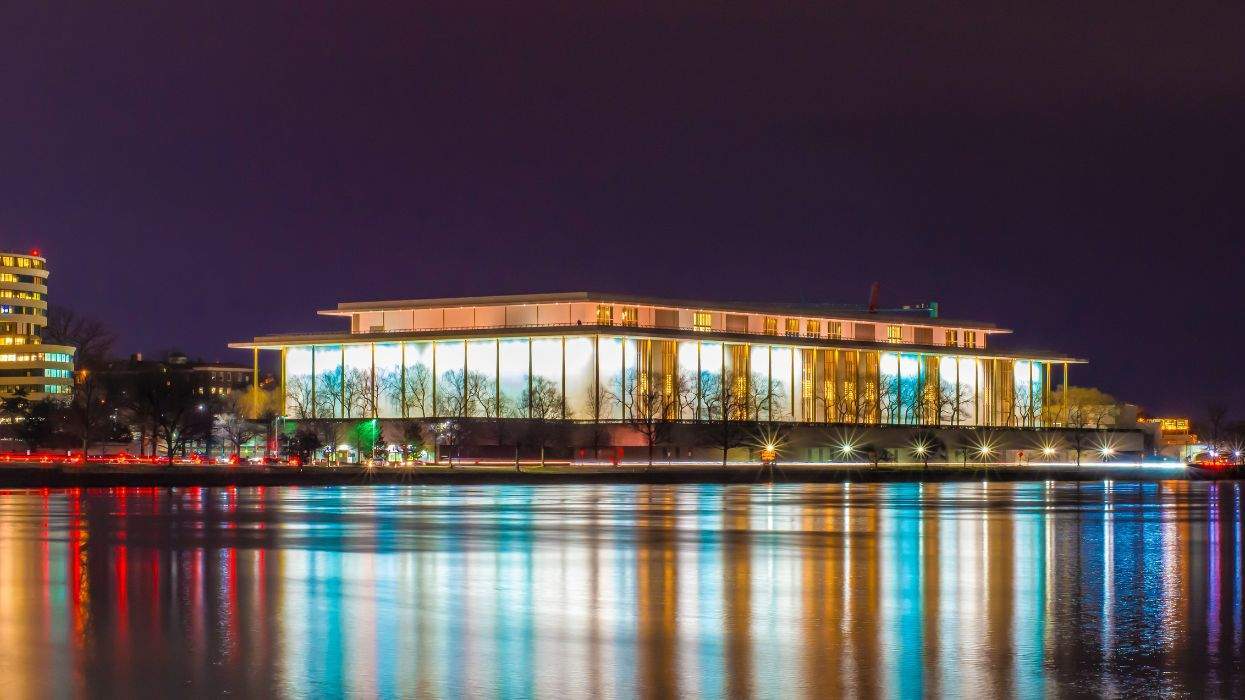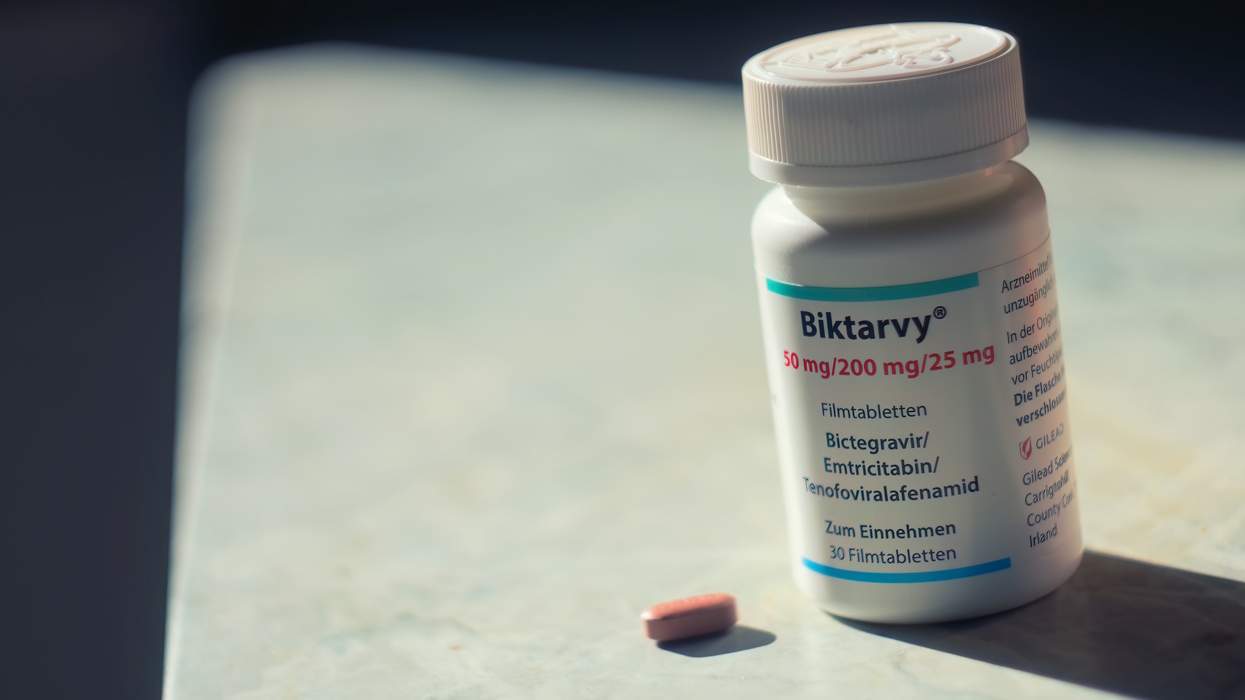Everyone knows who Sam Altman is, but no one really knows who Sam Altman is.
Arguably, he is the current “it” person of the global business world. His name is synonymous with the biggest technological advancement of our time, AI, short for artificial intelligence, which many consider the fourth industrial revolution.
Altman answered questions from The Advocate, and it’s the first time he has talked to LGBTQ+ media, or for that matter, associated himself with a symbol that is as profoundly queer as The Advocate.
He is Time magazine’s reigning CEO of the Year. This honor came to Altman late last year during what was perhaps his most intense public exposure. He was fired by the board of directors as CEO of OpenAI, one of the leading AI companies in the world. Then Microsoft, a heavy investor in OpenAI, hired him. Altman’s workforce at OpenAI wanted him back and said so in a letter to the board. Microsoft then almost hired those 700 petitioners, and to quickly right a wrong, OpenAI’s board reconsidered and brought Altman back. The incident prompted an SEC investigation.
Microsoft then invested even more billions in the company in a bid to win the AI race, which Altman for all intents and purposes leads. He now survives and thrives at OpenAI. That drama is a distant memory for the private Altman.
After the unparalleled success of OpenAI, “Altman emerged as one of the most powerful and venerated executives in the world, the public face and leading prophet of a technological revolution,” the Time article notes.
Bill Gates was the public face of software that revolutionized the way we work and live. Steve Jobs was the public face of the personal computer and the mobile computer/phone that revolutionized the way we work and live. Mark Zuckerberg was the public face of social media that revolutionized the way we live and to some extent work.
And now it's Altman’s turn as a revolutionary. He is the protagonist of AI, which is revolutionizing the way we will work and the way we will live in ways we can’t even imagine. He is also a gay man.
Keep up with the latest in LGBTQ+ news and politics. Sign up for The Advocate's email newsletter.
Altman was born in St. Louis in 1984, and while a student at Stanford, he created a start-up and left the school. He had a series of successes with start-ups that led to him teaming up with Elon Musk, among others, to create OpenAI. The company was originally formed as a nonprofit with the altruistic goal of preventing AI from blowing us all up (Today, Musk sued Altman and others at ChatGPT, a subsidiary of OpenAI, saying the company diverged from its original, nonprofit mission by partnering with Microsoft.).
The rest, as they say, is history, although OpenAI is now not in the business of keeping AI from eliminating the history of humanity, at least not overtly, it has become the linchpin of the AI industry and a cash cow. The company is now a juggernaut worth $86 billion.
Beyond his association with OpenAI, most people don’t know much about Altman. Similar to Gates and Zuckerberg, who both dropped out of Harvard, and Jobs, who dropped out of Reed College, Altman dropped out of Stanford. And like all of them, he’s a billionaire, a marveled prodigy, a distinguished disruptor, and immensely private.
Sitting on top of the throne in the fast-evolving world of technology is a fleeting experience. But for now, it’s all Altman, the current golden boy of the male-dominated tech industry as a gay male. And that in and of itself is what sets Altman apart from his predecessors.
Altman has become the gay du jour of the business world, assuming, usurping, or even sharing, depending on who you talk to, that spot with Apple’s reclusive gay CEO Tim Cook. In fact, one of the last times Altman talked about being gay was during an interview over six years ago with the The New Yorker, where he gave tacit appreciation for computers helping him to deal with being gay as a youth saying, "Finding AOL chat rooms was transformative. Secrets are bad when you're eleven or twelve."
Altman hasn't talked much about being gay since then. He came out a year earlier in a blog post in 2015, so there’s not much public about that aspect of his identity. It’s well known that he disclosed his gayness to fellow students during high school, when he defended a National Coming Out Day speaker against the objections of some.
Altman did make personal news in January – somewhat, if you were paying attention and didn’t blink – when it was divulged that he married his longtime partner, Oliver Mulherin, a software engineer. In a rare public peek at the relationship, Altman took Mullherin with him to a White House dinner last June for Indian Prime Minister Narendra Modi.
While many might see Altman as all brains, ingenuity, and bottom lines 24/7, he did reveal in a 2017 blog post that he has a heart. “I wish we could figure out a way to just never allow hate, discrimination, and bigotry and always allow debate on controversial but important ideas. If that were possible, I’d support it. The distinction is usually clear, but the exceptions are sometimes critically important. Figuring out exactly where to draw the line is really hard.”
When you talk to Altman, one of the first things you notice is his intense — and deliberate — thoughtfulness. He weighs answers to questions carefully. And why wouldn’t he? One wrong answer might cost his company billions of dollars. That’s just the nature of being a high-profile CEO, and it’s nothing against Altman as a person.
Yet even with answers to personal questions, he is careful, and that’s not to imply that he is hiding anything. He rarely talks to the media and doesn’t say much about being gay, so it might be that Altman is still trying to figure out how to present himself as a gay man when the spotlight is shining on him, as it is now, so blindingly bright.
Which is perhaps the main reason why he holds back. When you become the “king,” the “golden boy,” the “it” person, your privacy is invaded, almost attacked. There’s a defense mechanism for people like Altman who are being bombarded. They try to keep shielded as much as they can in the face of daunting scrutiny. The reason Altman wanted to speak to The Advocate was not so much to talk about himself but to send a signal to our community that it's his community too.
When he ponders answers to questions, he looks skyward to his left. It’s almost like there are dozens of thoughts swirling around his head, like a chock-full word cloud. It’s as if Altman is trying to pull the most appropriate and applicable. When he’s ready, he turns his head, straight ahead, and delivers his response succinctly.
What follows is an edited version of the conversation.
The Advocate: First, Sam congratulations on your marriage. Was it last month?
Sam Altman: Thank you, it was actually a couple of months ago. We did it earlier and then the news leaked out in January.
So how has married life been treating you?
It's actually great, I was expecting it not to feel any different or better; however, it does feel different and feels better. I’m very happy.
It’s a better start to your days?
Yes, I’m no different than anyone else. I usually go downstairs, make coffee, do my emails and Slack, just catch up.
That’s before the madness begins?
[Laughs] Yes, it’s a super busy time for us. And I just end up being scheduled from when I wake up to when I go to bed. I love it, though. The best thing about it is that the work is different and that means it’s always interesting. And we're in the office most of the time, which I really like.
What's the best part of what's happening to you and where you are now personally?
I get to work on something that I think is gonna have an extraordinarily positive impact on people, and I get to work with what I think is the most talented group of people in the world. And you know, the days are sort of long and stressful, but I'm very grateful to get to do this work with these people.
And based on what happened last year, they sound pretty loyal too.
I think we are all loyal to the mission.
And they’re undertaking this mission with you as a gay CEO. Do you ever think about the magnitude of that?
First, I am extremely grateful to be where I am, and I think about how grateful I am every day. I don't really think about being a gay CEO. I don’t look at it that way. What I know is that it took an enormous amount of work and sacrifice from a lot of people over a very long period of time to get where we are today. I can now just sort of focus on my work and I don't have to think much about that question, and I think that's a tremendous step forward to be in a more equal world.
If this happened, say 20 years ago…
Yes, it would be news, but not so much today, and that’s a good thing.
And with all that’s going on with marriage equality, it sounds like a silly question, but…
I feel very lucky that we were able to marry in this day and age. When I was growing up it wasn't clear that was going to be the case. I think the public opinion and the laws have changed more quickly than I ever thought they would, so I’m grateful for that.
Speaking of laws, I know you kind of flirted with the idea of politics and running for office. I believe it was for governor of California In 2018? Is the political bug still there?
[Laughs] I don't think I'd be well suited for it, and I also really like what I do, you know, so doing something like that would take me away from what I love.
I have read that your focus is pretty intent about working toward the future of AI.
It really is. We want to keep pushing on the frontier of AI research and figure out how to build this great technology and then also figure out how to make it useful to people and get it into their hands, so frankly, I don’t have time for politics.
Let’s switch gears for a moment and talk about LGBTQ+ people in the tech world. I don't have to tell you that the perception is that the tech world is predominantly full of young white straight guys. Does your presence and success open the door to more queer representation?
Well, I hope it does. Yeah, I think this is a field with a lot of core representation and a lot of opportunity, and I certainly hope no one would choose to work in this industry because they're queer or not. My hope is that it’s just a nonfactor. But I also hope that people who are queer and are interested in this industry would feel no reason not to come work in it.
So I've been reading a lot about spatial computing, or AR, and that might be the next frontier or the future after AI. What are your thoughts on that?
You know we'll keep using desktops, we'll keep using phones, but I think this is a fundamentally new thing. And my first experience with both was with Quest 3 and the Apple Vision Pro. They are both incredible devices. And it feels to me like we are finally now gonna get to see this happen, which is pretty exciting.
Speaking of the future, should we be apprehensive about how much and how quickly things are going to change, and the unfamiliarity of the impact of that change?
We seem to be really great as a society, as individuals, as a species at dealing with change and with technological change. You know, think about how different the world was 20 years ago. We didn't all have smartphones, and that seems unimaginable now.
I hope that 20 years from now, we look back at this time and say it seemed unimaginable that we didn't all have personalized artificial intelligences doing these amazing things for us, and just this like super different world that advances society in a good way I do think that the rate of change in the coming couple of decades will be immense, but I feel very confident in our ability to rise to that challenge.
To that end, would you say there are a lot of misconceptions about AI?
The biggest misconception about AI I think is there's confusion about whether AI is thought of as a tool or a creature. It’s a better movie plot if it’s a creature in a sci-fi movie, for example. If you use ChatGPT, it's clearly a tool.
There's still risks with tools, of course, but they're of a different shape and a different kind of profile. And I think the popular misconception of AI as sci-fi is very, very different from people who have been using it as a tool for a long time.
And by the way, I think it's great that what we're building is like a tool, because if you give humans better tools, they do these amazing things to surprise you on the upside and that builds all this new value for all of us.
What sort of surprises are you talking about?
Some categories that we're very excited about is education and what people are doing there with personalized tutoring. And AI in health care, with personalized medical advice. Then there’s creative work components and amazing new things people are dreaming about, and making productivity more efficient and faster. If you look at what's happening with programmers and the tools that they're using to be able to just do so much more. I could keep going.
I can see that. You’re like a kid in a candy store. Do you think a lot about that little boy growing up in St. Louis who has come all of this way?
Sure, there are definitely moments usually like when I’m alone or walking alone in the woods or something when I'm in a contemplative mood and where I sort of can't believe this happened to me.
You know, it was definitely like my childhood dream to get to work with computers and to get to work on artificial intelligence in particular. And you know, I had no idea how my life was gonna go. But I'm super grateful that I get to do this, and yes there are times I think back and understand how lucky I am to get to do what I wanted to do since I was a kid.
When you were growing up, was there an LGBTQ+ person who you admired or who inspired you?
[Extra long pause] That’s a really great question, and you know, I never really thought about that.
How about the first LGBTQ+ person you met?
Mmm…
I usually ask this question, and I’m always surprised that it always stumps people.
Yes, it does [extra long pause]. I guess it’s probably the first guy I ever hooked up with [laughs].
OK, let’s switch back to something you might be more comfortable with. How do you feel about your place in the history of technology, and as a revolutionizer?
I am a big believer that all of this is like one long technological revolution. It's not that we had the agricultural revolution and then the industrial revolution and then the computer revolution and now the AI revolution — it's all of these things built on top of each other.
And you know, all that magic didn’t come from one person's brain, but it is the scaffolding between all of our brains and the way that society works together that enables these advancements. It’s an amazing collective intelligence that builds up this infrastructure outside of any one person, one innovation, one innovator, and that we get this tremendous society to benefit from that. That's the thing that I think is most exciting about the future.
Are we doing enough to train the next generation in AI, in digital, in order to keep that scaffolding you talk about rising?
One of the things that I think happens in general with technology and has been amazing to watch is how fluent young people, students, are with this technology and how they're adapting it into their lives.
And so, you know, I think it'd be great for the schools to do more, but young people are already doing so much with technology.
The main thing that I learned in school was not how to use any particular thing or any particular piece of knowledge, but it was like the meta ability to learn new things, to be curious, to come up with new ideas, new ways to look at problems.
And I think fundamentally that's what schools should teach. Of course, it's helpful to make people more proficient with the current tools and what they're gonna need to work with as they enter adult life. But the lessons that stuck with me most from school were not about any specific tool or anything like that.
Getting more specific, what’s your message to queer youth, especially with all the hate bills floating around state capitols and with the death of Nex Benedict, a trans high school student in Oklahoma? It’s really been a rough time.
It’s just so sad and unfortunate, but I really believe in our youth, and I feel heartened about the long-term and even the medium-term trajectory.
And I, like so many others, am proud of the arc of progress in general, and I'm very grateful to all of the work that people have done and do. And I think we're different in any way that we're able to handle the pressures and adversity.
But I find the trajectory, if we zoom out, to be inspiring, and the way it happens is because people work really hard to make things a little bit better and to shift public opinion. It’s a civic duty, and duty to each other and to the world to keep making things a little bit better and that there's room for all of us to come along on that journey, both personally and as a society.
Are you happy with the journey you are on?
Well, I don’t know where it’s going, but I love what I'm doing now. I married to a guy I love. I hope we have children someday. I love my family; I love my friends. So I don't really feel like I'm trying to get anywhere, but I'm very grateful to be where I am right now.



